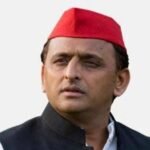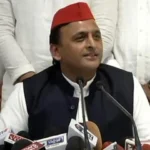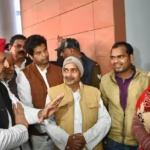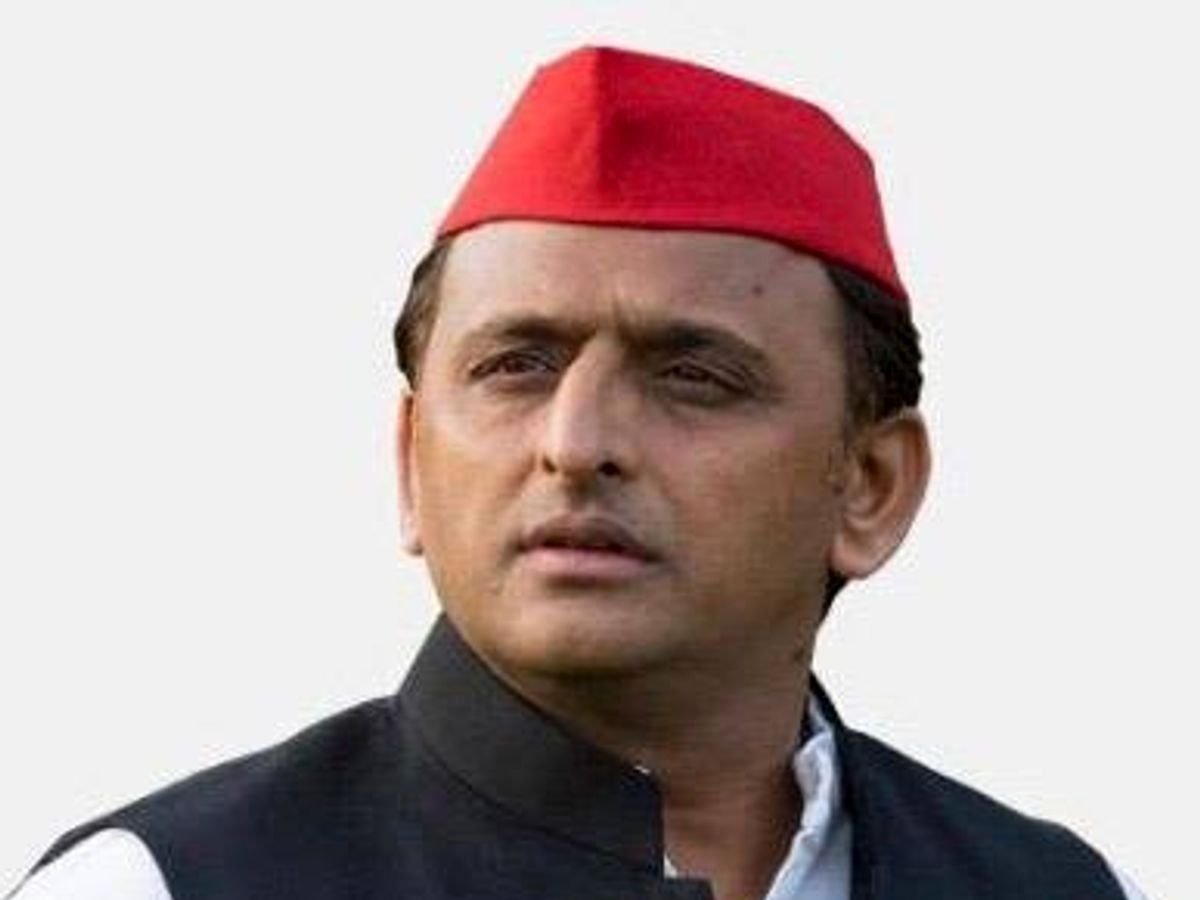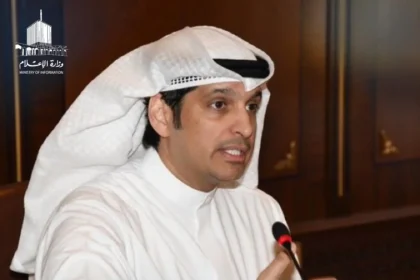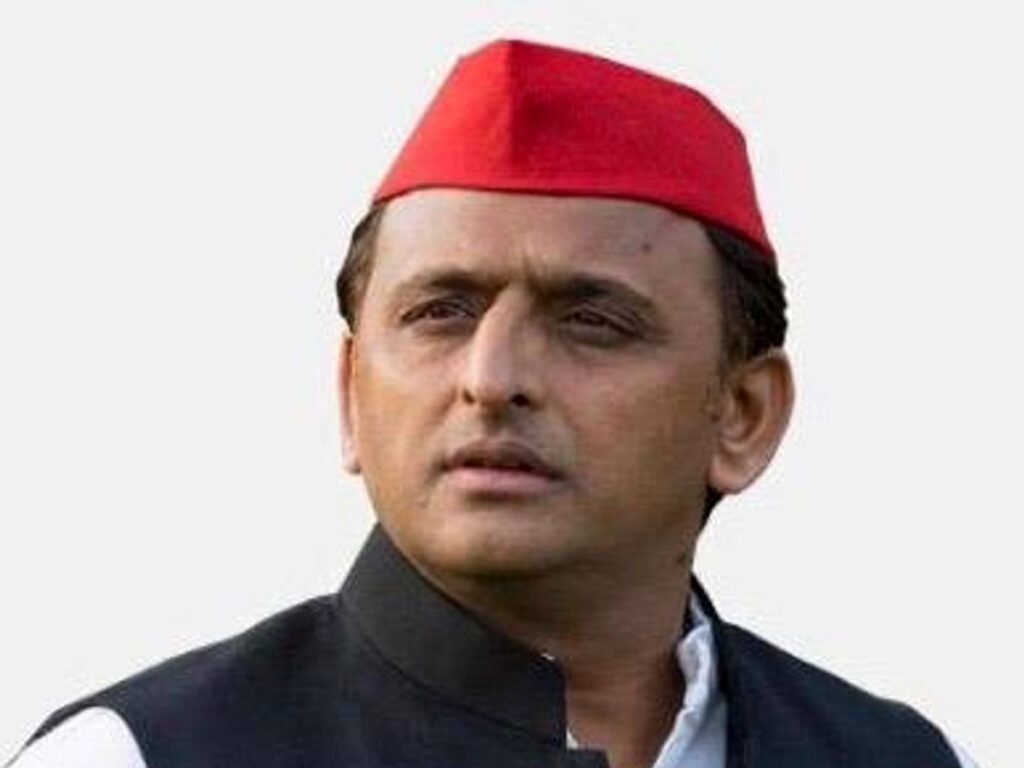
MOHAMMAD TARIQUE SALEEM
Samajwadi Party president and former Uttar Pradesh Chief Minister Akhilesh Yadav strongly criticized the BJP-led state government on February 18 for the removal of 1965 war hero Abdul Hamid’s name from a school in Ghazipur district. Calling the act “extremely reprehensible,” Yadav accused the ruling party of prioritizing political agendas over the nation’s martyrs, even suggesting that some might attempt to rename “India” as “BJP.”
The school in Dhamupur village, previously named after Param Vir Chakra awardee Abdul Hamid, was recently renamed ‘PM Shri Composite School.’ Officials claimed the removal of Hamid’s name from the school’s gate and external wall occurred during routine repainting. However, his family protested, and following widespread backlash, school authorities reinstated his name at the entrance, renaming it ‘Shaheed Veer Abdul Hamid PM Shri Composite School, Dhamupur, Jakhanian, Ghazipur district.’
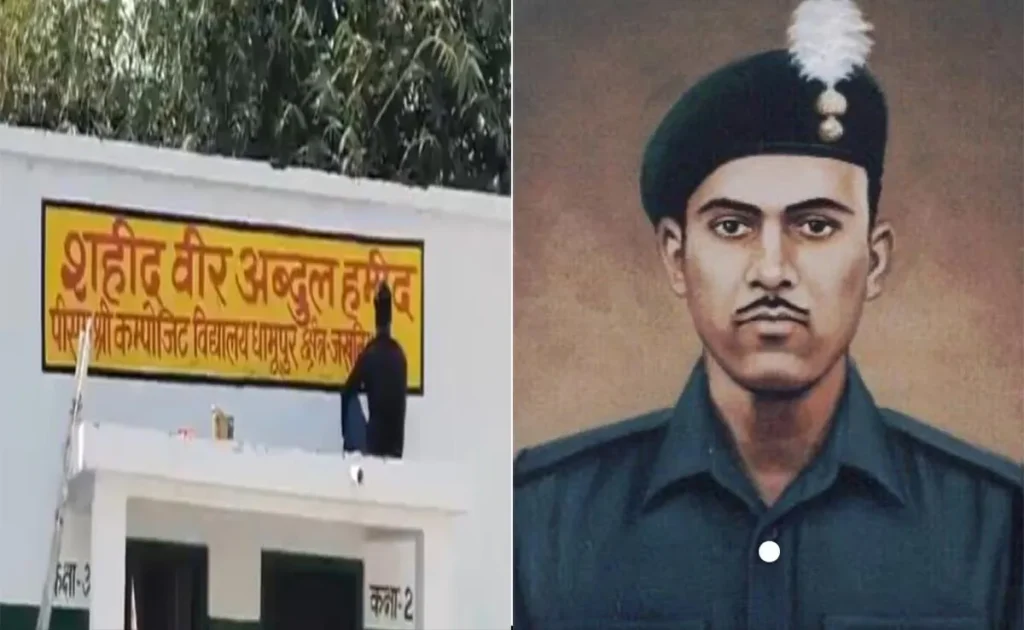
Akhilesh Yadav, sharing a news report on social media platform X, condemned the incident, stating, “It is extremely reprehensible and indecent that more importance is being given to someone else than to those who sacrifice their lives for the country. Now all that remains is for some people to change the name of the country from ‘India’ to ‘BJP’.” He further criticized the ruling party, saying, “Those who neither played any role in getting Independence nor in saving the Independence, how can they know the importance of martyrs?”
Abdul Hamid, a war hero from the 1965 Indo-Pak war, was posthumously awarded India’s highest military honor, the Param Vir Chakra, for his bravery in destroying enemy tanks. His family, including grandson Jameel Ahmed, was disheartened by the omission of his name from the school. The incident sparked outrage, with many questioning why a national hero’s name was sidelined. Though the authorities later restored Hamid’s name, the controversy reflects broader tensions over historical and political narratives. Many opposition leaders and citizens view such moves as an attempt to erase the contributions of national heroes in favor of political rebranding. This incident highlights the ongoing debate about honoring India’s war heroes while ensuring their sacrifices are remembered beyond political affiliations.
Samajwadi Party (SP) president and former Uttar Pradesh Chief Minister Akhilesh Yadav has strongly condemned the removal of 1965 war hero Abdul Hamid’s name from a school in Ghazipur district. Yadav, a vocal critic of the ruling Bharatiya Janata Party (BJP), described the act as “extremely reprehensible” and accused the government of sidelining national heroes in favor of its political agenda.
He further alleged that if such trends continue, “some people” might even attempt to rename India as BJP, indicating his discontent with the government’s approach toward historical figures and martyrs. The controversy arose when the school in Dhamupur village, where Param Vir Chakra awardee Abdul Hamid once studied, was renamed ‘PM Shri Composite School.’
The removal of Hamid’s name from the school’s gate and external wall was attributed by local officials to repainting work. However, the omission sparked immediate backlash from Hamid’s family and the public, leading to widespread protests. Facing mounting criticism, the authorities reinstated his name at the school’s entrance, renaming it ‘Shaheed Veer Abdul Hamid PM Shri Composite School, Dhamupur, Jakhanian, Ghazipur district.’
The removal of Abdul Hamid’s name from the school ignited strong reactions from political leaders and the general public. Akhilesh Yadav took to social media platform X (formerly Twitter) to express his disapproval. Sharing a news report on the incident, he wrote, “It is extremely reprehensible and indecent that more importance is being given to someone else than to those who sacrifice their lives for the country.” His statement reflected his frustration with the government’s perceived disregard for martyrs and their contributions.
Yadav did not stop there. He further criticized the ruling party, stating, “Those who neither played any role in getting Independence nor in saving the Independence, how can they know the importance of martyrs?” This remark was directed at the BJP, suggesting that the party, which was not actively involved in the Indian freedom struggle, lacks an understanding of the sacrifices made by soldiers and freedom fighters.
Many opposition leaders echoed Yadav’s sentiments, arguing that the move to rename the school was politically motivated. They accused the BJP of attempting to erase history and replace it with a narrative that aligns with their ideological leanings. Several activists and members of civil society also condemned the act, stating that national heroes should be honored beyond political lines and their contributions must be preserved for future generations.
Abdul Hamid remains one of India’s most celebrated war heroes. He was posthumously awarded the Param Vir Chakra, India’s highest military honor, for his bravery during the 1965 Indo-Pakistan war. As a soldier in the 4th Grenadiers of the Indian Army, Hamid played a crucial role in the Battle of Asal Uttar, where he single-handedly destroyed multiple enemy tanks, significantly weakening Pakistan’s offensive.
His heroic actions ultimately cost him his life, but his sacrifice was instrumental in India’s victory. For the people of Dhamupur, where Hamid was born and raised, his legacy is a matter of immense pride. The school bearing his name was seen as a tribute to his courage and selflessness. The removal of his name, therefore, was not just an administrative decision but a deeply emotional issue for the villagers and his family. His grandson, Jameel Ahmed, expressed disappointment over the incident, stating that the school was repainted five days before the controversy erupted. During this process, ‘Shaheed Hamid Vidyalaya’ was erased and replaced with ‘PM Shri Composite School’ at the entrance. This change was met with resistance, prompting authorities to restore the original name with slight modifications.
The controversy surrounding Abdul Hamid’s school is not an isolated event. In recent years, there have been multiple instances where historical names, places, and institutions have been renamed, often leading to political and social debates. Critics argue that such moves are attempts to rewrite history and align public memory with the ruling party’s vision. The BJP, on the other hand, has maintained that its efforts to rename places and institutions are aimed at correcting historical wrongs and promoting a sense of national unity.
However, opposition leaders like Akhilesh Yadav believe these changes are selective and often ignore the contributions of individuals who do not fit into the party’s ideological framework. This incident has reignited discussions about the importance of preserving historical narratives and ensuring that national heroes, regardless of their background or political affiliations, receive the respect they deserve. Abdul Hamid’s bravery is a part of India’s military history, and any attempt to diminish his legacy is bound to face strong resistance.
The renaming of the school in Dhamupur and the subsequent removal of Abdul Hamid’s name led to a significant political and public outcry. While authorities later reinstated his name following protests, the incident has once again highlighted the ongoing debate over historical erasure and political influence in shaping public memory.
Akhilesh Yadav’s strong criticism of the BJP government reflects a broader concern over the treatment of war heroes and historical figures in contemporary politics. Whether this controversy will lead to lasting changes in how India honors its martyrs remains to be seen, but one thing is clear Abdul Hamid’s legacy cannot be erased, and his sacrifice for the nation will always be remembered.


